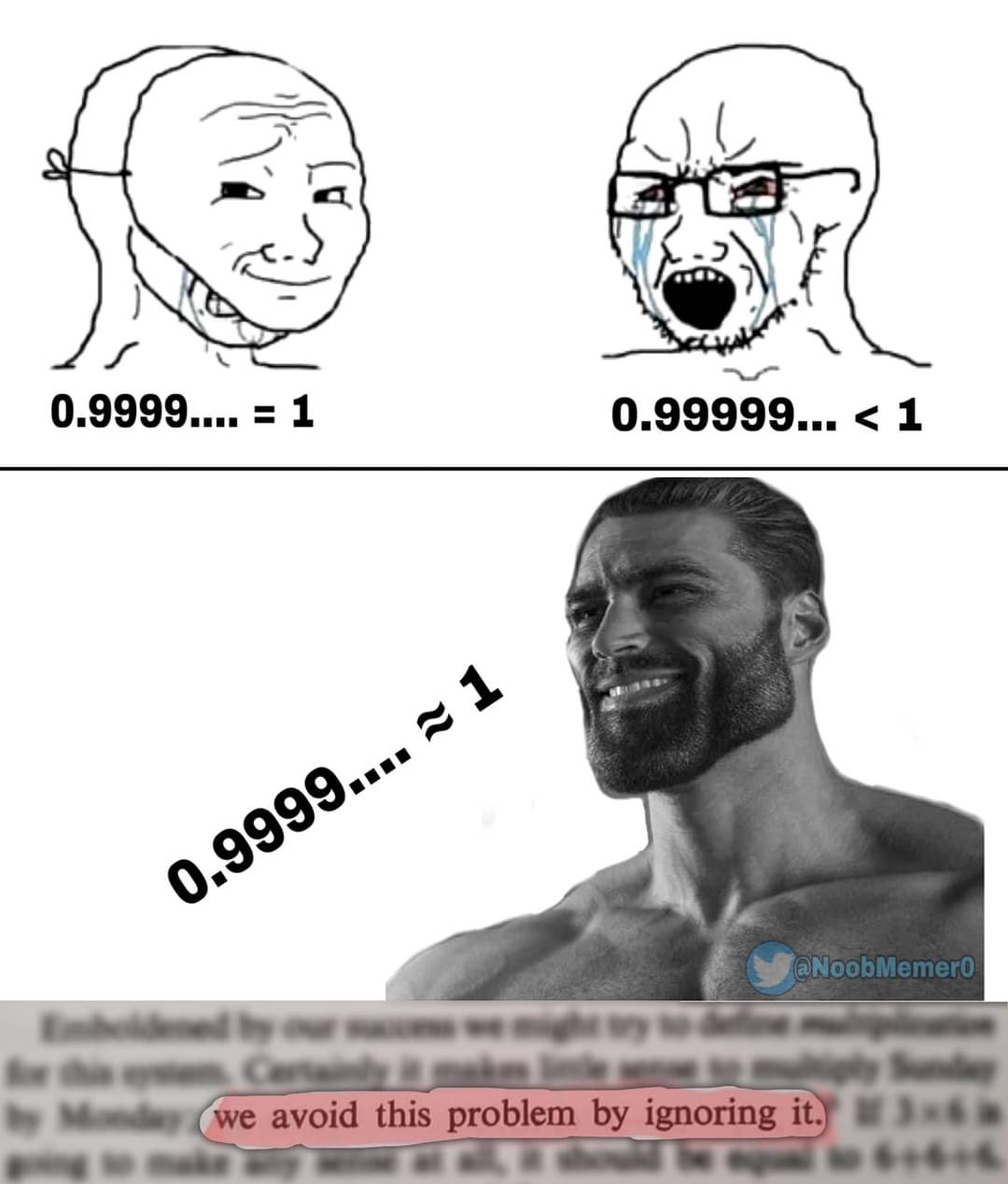this post was submitted on 27 Jun 2024
816 points (95.2% liked)
Science Memes
11068 readers
2824 users here now
Welcome to c/science_memes @ Mander.xyz!
A place for majestic STEMLORD peacocking, as well as memes about the realities of working in a lab.

Rules
- Don't throw mud. Behave like an intellectual and remember the human.
- Keep it rooted (on topic).
- No spam.
- Infographics welcome, get schooled.
This is a science community. We use the Dawkins definition of meme.
Research Committee
Other Mander Communities
Science and Research
Biology and Life Sciences
- [email protected]
- [email protected]
- [email protected]
- [email protected]
- [email protected]
- [email protected]
- [email protected]
- [email protected]
- [email protected]
- [email protected]
- [email protected]
- [email protected]
- [email protected]
- [email protected]
- [email protected]
- [email protected]
- [email protected]
- [email protected]
- [email protected]
- [email protected]
- [email protected]
- [email protected]
- [email protected]
- [email protected]
- !reptiles and [email protected]
Physical Sciences
- [email protected]
- [email protected]
- [email protected]
- [email protected]
- [email protected]
- [email protected]
- [email protected]
- [email protected]
- [email protected]
Humanities and Social Sciences
Practical and Applied Sciences
- !exercise-and [email protected]
- [email protected]
- !self [email protected]
- [email protected]
- [email protected]
- [email protected]
Memes
Miscellaneous
founded 2 years ago
MODERATORS
you are viewing a single comment's thread
view the rest of the comments
view the rest of the comments

Now, ask yourself this question, 'is 0.999..., or any real number for that matter, a series?'. The answer to that question is 'no'.
You seem to be extremely confused, and think that the terms 'series' and 'the sum of a series' mean the same thing. They do not. 0.999... is the sum of the series 9/10+9/100+9/1000+..., and not a series itself.
EDIT: Also, the author does abuse the notations somewhat when she says '1+1/2+1/4 = 2' is a geometric series, as the geometric series 1+1/2+1/4+... does not equal 2, because a series is either just a formal sum, a sequence of its terms, or, in German math traditions, a sequence of its partial sums. It is the sum of the series 1+1/2+1/4+... that is equal to 2. The confusion is made worse by the fact that sums of series and the series themselves are often denoted in the same way. However, again, those are different things.
Would you mind providing a snippet with the definition of the term 'series' that she provides?
EDIT 2: Notably, that document has no theorem that is called 'convergence theorem' or 'the convergence theorem'. The only theorem that is present there is the one on convergence and divergence of geometric series.